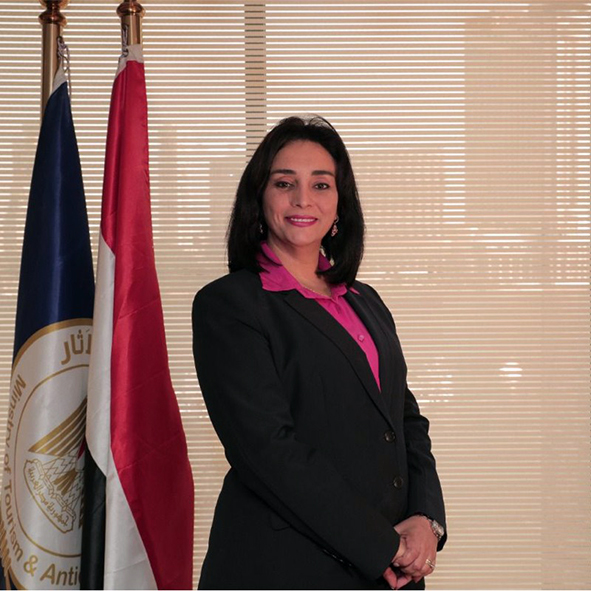SLP CEO Joining World Leaders to discuss Sustainable Tourism at ATM 2023

Dr. Miniya Chatterji, CEO Sustain Labs Paris, a flag bearer of Sustainability will be a speaker on two panels to discuss existential challenges and opportunities in sustainable tourism at the Arabian Travel Market (ATM) in Dubai at the Dubai World Trade Centre (DWTC) from 1 to 4 May, 2023.
Dubai, UAE; May 01, 2023

The global tourism industry represents 11 percent of the global greenhouse gas emissions, primarily driven by the air travel industry – a topic that will come into focus at the upcoming edition of the Arabian Travel Market taking place at the World Trade Centre from May 1-4, 2023, in which Dr. Miniya Chatterji, CEO Sustain Labs Paris, a flag bearer of sustainability across multiple industries will speak on two panels about ways to reduce tourism’s carbon footprint, as part of the UAE’s observance of 2023 as the Year of Sustainability in advance of COP28.
The sustainable tourism market is projected to increase at a Compound Annual Growth Rate (CAGR) of 9.54 percent to US$335.93 billion in 2027, according to research by Technavio. From plane flights and cruises to souvenirs and lodging, various activities contribute to tourism’s carbon footprint. Most of this footprint is emitted by visitors from high-income countries, with U.S. travelers at the top of the list. As the number of people who can afford to travel grows, so will tourism’s environmental footprint.
New technologies such as solar-powered water heaters, temperature control systems, revised hospitality Beyond the economic benefits standards and energy saving appliances allow the industry to lessen its carbon footprint. Yet these innovations are not enough to outweigh the emissions created by a growing number of travelers.
“Projections indicate that tourism emissions could reach 6.5 billion metric tonnes by 2025. This represents a 44 percent increase from 2013, and is equivalent to about 13 percent of current global greenhouse gas emissions. For those emissions that aren’t yet avoidable, carbon offsetting should be used to complement sustainability practices and reduce tourism’s carbon footprint,” said a report published in www.nature.com.
A World Travel and Tourism Council (WTTC) report indicates “An estimated 11 percent of global greenhouse gas emissions are due to tourism, and that’s predicted to double by 2050, the year scientists have forecasted as the tipping point for all sorts of ecological disasters. By then, our planet will have warmed 1.5C (2.7F) above preindustrial times. By the end of the century, the figure looks to be 2C (3.6F), with that half-degree making a huge difference. If emissions are left unchecked, this warming will accelerate, bringing forth a distinctly heightened level of cataclysmic weather patterns.”
Sustainable tourism, also known as ecotourism or green tourism, is a form of tourism that attempts to take responsibility for its current and future economic, social, climatic and environmental impacts, by looking at the needs of visitors, the industry, the environment, and host communities. When surveyed in 2022, over 80 percent of global travelers said that sustainable tourism is important.
The global tourism industry was thriving up until 2020. That year, both leisure and business travel spending plummeted across the globe because of the coronavirus (COVID-19) pandemic. Despite this decline in global travelers, the market size of the sustainable tourism sector worldwide was forecast to increase in the coming years.
By the end of 2022, the ecotourism market size globally is predicted to have grown to $185.43 billion, an increase of 17.5 percent from $157.76 billion in 2021. By 2026, the global ecotourism market size is expected to increase to $299.03 billion, with a compound annual growth rate (CAGR) of 12.7 percent, according to a study by Statista.
When traveling, 69 percent of people want to reduce their carbon footprint and up to 32 percent of travelers say that accommodation providers should offer information about local ecosystems, heritage, culture, and tourist etiquette says renowned travel & booking site Booking.com.
Dr Miniya Chatterji’s first session is on May 1, entitled, “Is Sustainability Profitable – Why Choose the Sustainable Road?” the session is organized by the Global Travel and Tourism Resilience Council which identifies outstanding global thought leaders to share their wisdom and expertise with the international travel ecosystem. Her Co-panelists will be leaders and tourism experts like Christian Delom, Secretary General of A World For Travel, Zina Bencheikh, Managing Director EMEA for Intrepid Travel, Jared Harckham, Vice President and Managing Partner of Aviation at ICF and Carlos Cendra Cruz, CMO of Mabrian Technologies. The session will showcase how and why the industry should be considering this move and how other organisations have made changes to their business models, through data utilization, sources of financing and communication strategies to fulfill this.
The “Strategic Sustainability Planning – Where Does The Supply-Chain Start?” panel on the 3rd day of ATM will be high profile panel discussion with HE Edmund Bartlett, Minister of Tourism Jamaica, HE Ghada Shalaby, Vice Minister of Tourism and Antiquities, Arab Republic of Egypt and Dr Miniya Chatterji along with moderator Gabriel Seder, Vice President, Global Development, Destinations International. The speakers will spar on their various perspectives which must take into consideration the development of sustainable supply chains.
As the global economy continually grows and becomes ever more interconnected, organizations are recognizing the need to ensure their supply chain operations are as environmentally friendly and sustainable as possible. To achieve this, businesses need to understand where, and how, their supply chains begin and formulate strategies to ensure all aspects of the chain are addressed when contributing to sustainability efforts. From the journey of travelers to digital resources and data available to them.

HE Edmund Bartlett, Minister of Tourism, Jamaica says, “As the travel industry fully embraces its transformation to a sustainable industry, we must not forget the supply chain impact. Travel providers, governments and academics need to ensure there is cohesion with all suppliers within the value chain. This session at the ATM provides a platform to share our thoughts and concerns on human capital.”
There’s ample evidence in Dubai’s progressive policies to show that adoption of sustainable practices can be an opportunity to thrive. In the first quarter of this year, there were two significant events in aviation, first, Emirates airlines trialled a flight powered by 100% sustainable aviation fuel (SAF), next, UAE Regulations Lab issued a license for an electric cargo aircraft. Widescale adoption of these two interventions alone would see significant drop in GHG (Greenhouse Gas).
Dr Miniya Chatterji, CEO Sustain Labs Paris says, “Dubai faces an existential challenge of balancing its thriving tourism industry with its race to attract the best talent in the world to live here. They are both the life lines of Dubai, and if not managed effectively, can be counterproductive.
“The attractions and experiences offered by Dubai make it an aspirational destination for tourists from all over the world. This is set to grow even further. By 2027 it is estimated that the travel and tourism industry in Dubai will grow further by 5 percent and result in a market volume of US$1.56 billion as UAE brings more than 30 million tourists, supports 770,000 local jobs and account for 11.1 percent of the total employment annually.
“Such exponential growth of foot fall of tourists in Dubai and the increased infrastructure to cater to mobility, accommodation, food and leisure activities, also emphasises the need for managing pollution, noise, biodiversity, quality of daily lives of residents, and also making it recession proof.”
HE Ghada Shalaby, Vice Minister of Tourism, Ministry of Tourism & Antiquities of the Arab Republic of Egypt says, “We do not see a start and finish to the supply chain but we see it as circular and integrated. We are evolving our tourism strategy with full engagement from all sectors, placing a strong focus on the private sector which we are supporting through speed to market initiatives. This in turn requires full engagement from the community to the supplier to the consumer and of course government. It’s a very exciting time in Egypt.”
“Upon hosting COP27 last November in Sharm El Sheikh and within the framework of Egypt’s long- term inbound tourism strategy, we are targeting annual growth from targeted markets by 25-305, and according to a recent survey adopted by the Egyptian Ministry of Tourism and Antiquities the results have shown that sustainable tourism is on the rise. We will be adopting high notes such as expanding sustainability certifications at the destination level, improving infrastructure, fair distribution of tourism returns/revenues across local communities. A clear whole market approach.”
Research by Sustainable Hospitality Alliance has found that the hotel industry would need to reduce its carbon emissions by 66 percent per room by 2030, and by 90 percent per room by 2050, to make sure that the growth forecasted for the industry does not cause an increase in its carbon emissions.
According to a recent McKinsey survey, many companies are actively integrating sustainability principles into their businesses by pursuing goals that go far beyond earlier concern for reputation management—for example, saving energy, developing green products, and retaining and motivating employees, all of which help companies capture value through growth and return. This trend will gain more traction, as businesses realise that transition is the only way forward. “Further, it is clear that the transition requires a focus on carbon output reduction efforts on which businesses must focus, which is why we created these critical sessions at ATM” stated Laurie Myers, Global Strategist for the Resilience Council.
ATM 2023 is held in conjunction with Dubai World Trade Centre and its strategic partners include Dubai’s Department of Economy and Tourism (DET) as the Destination Partner, Emirates as the Official Airline Partner, IHG Hotels & Resorts as the Official Hotel Partner, and Al Rais Travel as the Official DMC Partner.
For more information, visit https://www.wtm.com/atm/en-gb.html






